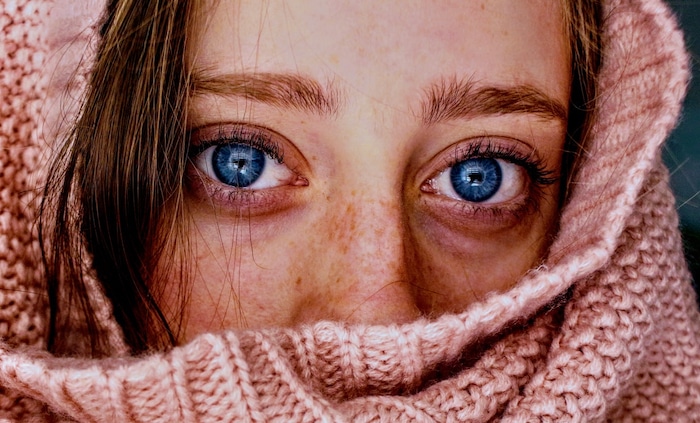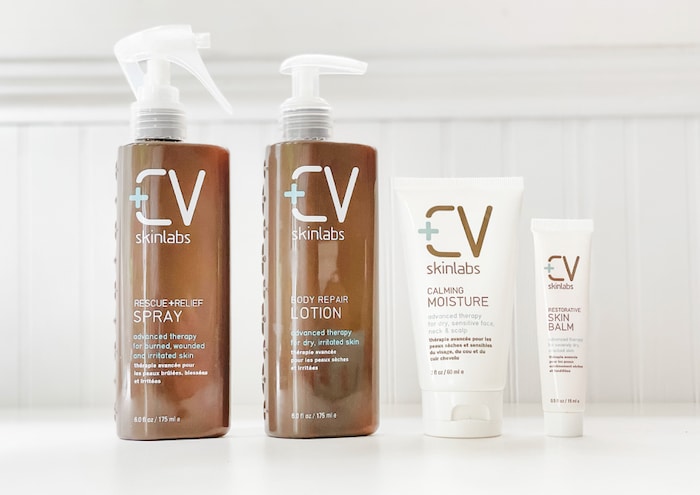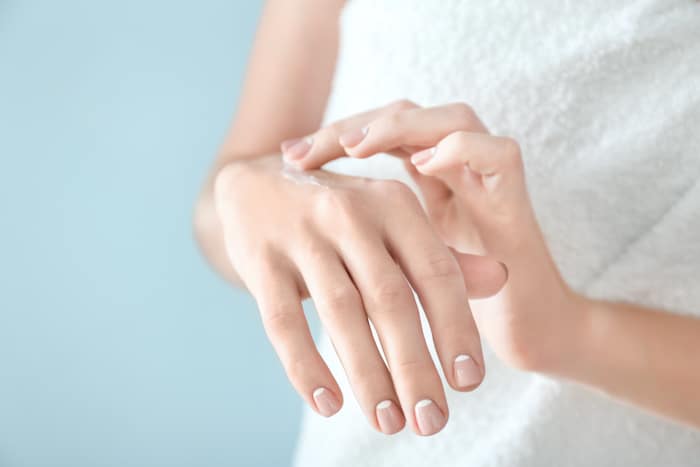
Have you been looking for relief for hives itching?
Don’t worry—you can stop scratching with these recommendations!
What Are Hives?
Hives (urticaria) are itchy bumps and raised patches that develop on the skin.
According to the American Academy of Dermatology (AAD), hives most often develop when the body releases a chemical called histamine. It’s a part of the immune system that causes all the symptoms you associate with allergies—sneezing, itching, and inflammation.
The body stores histamine inside some cells. When the immune system recognizes what it thinks is a threat—such as pollen or pet dander, for instance—it releases histamine and other chemicals to “protect” you from this invader.
Unfortunately, in the case of allergies, the immune system releases histamine when there is no real threat. After all, pollen and pet dander don’t make you sick—unless your immune system overreacts to them.
The immune system may release the histamine that causes hives in reaction to:
- An allergen (maybe a food, clothing material, bug bite, pet dander, pollen, or medication)
- Sunlight exposure
- Stress
- Heat, sweat, or cold
- Pressure on the skin (tight clothing or straps)
Some people may also develop hives in reaction to an infection like strep throat or a urinary tract infection.
Relief for Hives Itching: What Causes Hives?
It’s not always clear what causes hives to show up. They are most often an allergic reaction as explained above, but other times they just show up and people can’t figure out why.
The AAD estimates that millions of people in the U.S. will develop hives and never find the cause. Some will continue to have them for six weeks or longer—a condition called chronic hives or “chronic spontaneous urticaria (CSU).”
Women are twice as likely to develop CSU during their lifetime as men and usually suffer it between the ages of 20 and 40.
How Are Hives Treated?
Mild cases of the hives are typically treated with antihistamines and anti-itch creams. It’s also helpful to find out what may have triggered them. If you have allergies or suspect that you may have them, keep a journal for a couple of weeks of what you eat, touch, and do. It can help you pinpoint what may be causing the hives to show up.
You can also trace your actions when you suffer from a bout of hives. What did you eat? Did you take medication? Have you been feeling stressed, or were you working out in tight clothing? Allergy tests can also help.
A dermatologist will take these steps when treating hives:
- Control the itch: Special lotions and creams can help provide relief from the itch.
- Calm the allergic reaction: Taking an over-the-counter antihistamine can help stop the body from releasing histamines, which will often stop the hives from forming as well.
- Reduce the inflammation: For those with severe cases of hives, doctors may prescribe corticosteroids to reduce the inflammation and itch.
- See an allergist: This can help you determine what may be triggering your hives so you can avoid those triggers.
Most cases of hives will clear up within 24 hours. But new ones may form quickly. If they continue to appear for six weeks or longer, you have chronic hives and need to check with your doctor.
We are finding that more and more dermatologist and allergists who prefer natural, effective skin care are recommending CV Skinlabs products. They contain ingredients that help tame inflammation and itch, without any potentially harmful ingredients that would make the irritation worse.
Get Relief from Hives Itching with These 7 Home Remedies
In addition to the standard treatment regimen listed above, you may also find relief from hives with these natural home remedies.
1. Cold Compresses
To get immediate relief from the itch, apply cool, moist bandages or dressings to the affected area. You can also wrap ice cubes in a wet washcloth and apply several times a day.
2. Anti-Itch Bath
Take a comfortably cool bath with baking soda or ground oatmeal sprinkled in. Both will help tame inflammation and remove the itch from the skin.
3. Use Safe Skincare Products
Some skincare products—particularly those that contain harsh chemicals—can trigger hives in those with sensitive skin. The hives may not appear for 12-24 hours, so watch your skincare and cosmetic products carefully.
Anyone who suffers from hives can improve their skin condition and potentially reduce those hives by using nourishing, safe skincare products. Look for those with real ingredients you can pronounce, and avoid those with harsh alcohols, preservatives, fragrances, talc, and the like.
Our CV Skinlabs products are all made for sensitive skin and contain only soothing, anti-inflammatory ingredients that will help prevent the appearance of hives. They can also soothe hives once they erupt. Try our Rescue + Relief Spray for cooling itch relief, then follow with our Calming Moisture or Body Repair Lotion to soothe the skin and make it more comfortable.
4. Prevent Dry Skin
Dry skin has a damaged outer barrier, which makes it more vulnerable to environmental triggers that may produce hives. You can help prevent hives from developing by using a fragrance-free moisturizer several times a day. We recommend our Calming Moisture and Body Repair Lotion because they are both formulated with natural anti-inflammatory ingredients that can help stop a reaction before it starts.
5. Apply Aloe Vera
The healing properties of aloe vera may help to soothe and relieve hives. Just make sure that whatever product you use contains only aloe vera or you may introduce other ingredients that could further irritate your skin.
All CV Skinlabs products contain aloe vera, and they don’t have any other irritating or toxic ingredients.
6. Choose Green Tea
Green tea has anti-inflammatory and antihistamine properties. Studies have shown that the antioxidants in green tea help strongly inhibit cells from releasing histamine. So drink green tea when you can, and if you break out in hives, brew some up, let it cool, and then apply it in a cool compress to the affected areas.
7. Try a Fish Oil Supplement
Fish oil supplements provide essential fatty acids that your body needs for good health. Taking a fish oil supplement may help your skin to resist breaking out into hives in the future. Studies have shown that people with other skin conditions—like eczema or psoriasis—benefit from fish oil supplements.
Have you found a good remedy for the relief of hives itching?
Featured photo by Jenna Hamra from Pexels.


